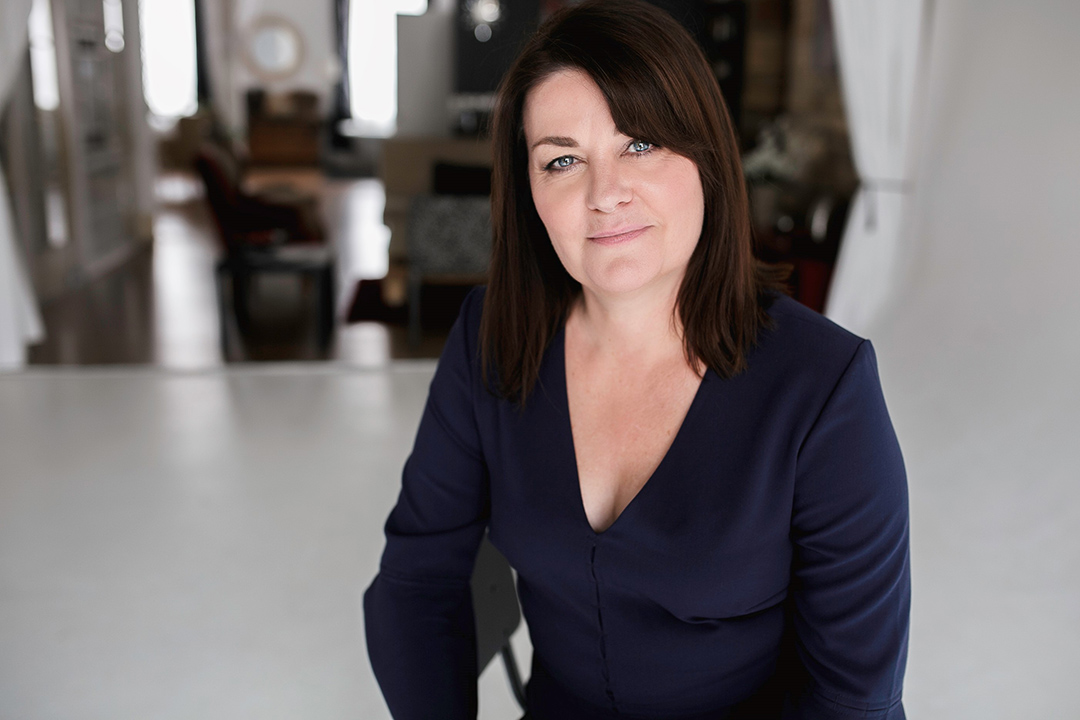
Creed leads new sustainability strategic plan
Tasked with creating a comprehensive sustainability strategic plan for the University of Saskatchewan (USask), Dr. Irena Creed (PhD) wasted no time in getting started.
By James ShewagaThe former Canada Research Chair and former executive director of USask’s School of Environment and Sustainability (SENS) was recently named by President Peter Stoicheff as special advisor to the president on sustainability. Creed quickly established a 16-member advisory circle as she began working to prepare the plan to present to University Council by Dec. 1, 2020.
“It is a very ambitious timeframe, but it is a necessary timeframe,” said Creed, who also serves as associate vice-president of research at USask as well as a professor in SENS.
Sustainability is one of the four key principles in the university’s Mission, Vision and Values document approved in 2016, as well as a pillar of the new strategic plan to be The University The World Needs, announced in 2018.
“When you consider the strategic plan of the university through to 2025, if we want to be authentic and have meaningful impact on the sustainability file, we need to move quickly,” Creed said.
The President’s Sustainability Council has evolved into the advisory circle to assist Creed in conducting a thorough review of sustainability initiatives underway on campus and to help formulate a new comprehensive plan for moving forward. While the university has been successful in many areas of sustainability, Creed said a more co-ordinated approach is required.
“We need to listen carefully to our stakeholders both on campus and beyond,” said Creed. “We need to engage in difficult conversations. For example, if we want to de-carbonize the institution, there are going to be challenges and consequences. So, we have to be careful listeners on how to come up with a made-in-Saskatchewan plan that is respectful of the people in the province but still has meaningful impact in terms of moving forward on sustainability.”
The university has had success in a number of areas, including earning a silver rating in 2017 in the Sustainability Tracking, Assessment and Rating System (STARS) that measures sustainability achievements at more than 600 post-secondary institutions across North America.
In addition to creating an Office of Sustainability, the university established SENS in 2007 and the Sustainability Education Research Institute (SERI) in 2012. USask started the Sustainability Revolving Fund in 2014 to support projects across campus, and signed a memorandum of understanding with the USask Students’ Union to fund student-led initiatives. The university has implemented water conservation, energy and recycling initiatives, turned waste into compost used for campus grounds, installed solar panels and solar-powered compactors, and established community gardens and a farmers’ market.
“I think this institution is already engaged in a lot of positive activities towards achieving sustainability and, in particular, to meeting the sustainable development goals as articulated by the United Nations,” said Creed. “I think part of the issue is that it is not presented in a co-ordinated, cohesive statement. So, the first step is to benchmark where we are, by completing an inventory of past and ongoing sustainability initiatives on campus. The next step is to identify where we can take transformative action and become sustainability leaders.”
Reducing the university’s carbon footprint with funding for building retrofits and renewable energy projects remains a major priority, although addressing greenhouse gas emissions is an ongoing challenge. In the latest emissions report released in November 2019, the university’s total greenhouse gas emissions increased 7.8 per cent. However, emissions per square metre of building space decreased 13 per cent across campus despite expansion, due to the construction of more energy-efficient buildings and retrofits.
“One transformation action is to decarbonize our campus,” said Creed, who wants to establish five- and 10-year goals moving forward. “We are committed to reducing our greenhouse gas emissions, and our approach is to explore a combination of proposed actions, including wind and solar, as well as other forms of renewable energy. This institution has already reduced our greenhouse gas emissions substantially. However, we are a growing campus, so while on a square-metre basis we are reducing, our emissions have gone up overall.”
The comprehensive plan will be designed to bring all the initiatives together and bolster a culture of sustainability across campus, from teaching and research, to university operations, and governance, as well as community engagement.
“We want to make this an open and transparent process,” she said.
While future financial investments have yet to be determined, Creed said the university is committed to doing what it takes to make a difference. “Because this is a priority for the university, we do know that we will have the resources moving forward.”
Usask Sustainability Advisory Circle:
Dr. Irena Creed (PhD), AVP-Research and Special Advisor
Dr. Stryker Calvez (PhD), Manager, Indigenous Education Initiatives
Julian Demkiw, Senior Strategist
Dr. Johannes Dyring (PhD), Executive Director, Innovation Enterprise
Dr. Murray Fulton (PhD), Director, JSGS
Kevin Hudson, Office of Sustainability
Janelle Hutchinson, Chief Strategic Officer
Autumn LaRose-Smith, USSU VP Student Affairs
Dr. Karsten Liber (PhD), Executive Director, SENS
Dr. Steven Jones (PhD), Vice-Provost, Health
Jason Maclean, Assistant Professor, College of Law
Dr. Patti McDougall (PhD), Vice-Provost, TLSE
Dr. Marcia McKenzie (PhD), Professor, College of Education
Dr. Jackie Ottmann (PhD), Vice-Provost, Indigenous Engagement
Dr. Chelsea Willness (PhD), University Secretary/Chief Governance Officer
Laura Zink, Director, Strategic Initiatives
With support from the Office of Sustainability:
Erin Akins, Sustainability Initiatives Co-ordinator
Matt Wolsfeld, Community Engagement Co-ordinator

